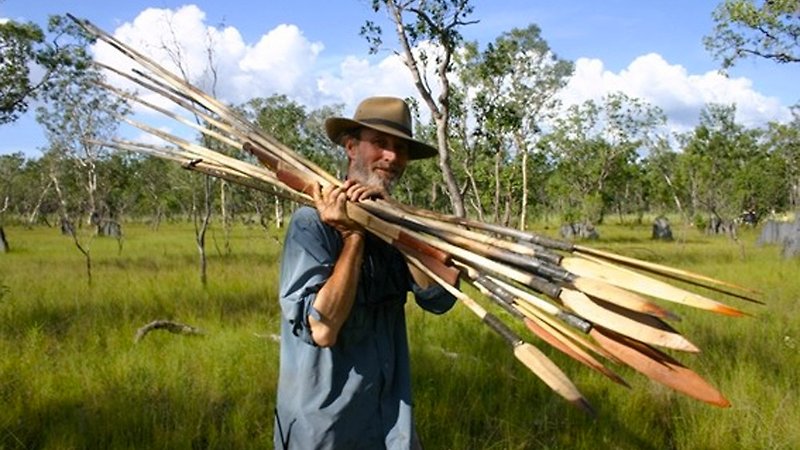This fascinating “making of” the wonderful Ten Canoes, is quite unlike any other you’ve seen as balanda filmmaker Rolf de Heer learns the traditions of aboriginal storytelling on the job.

Screened as part of NZIFF 2006
The Balanda and the Bark Canoes 2006
The Balanda and the Bark Canoes is one of the more fascinating ‘making of’ documentaries you’ll ever see – just as Ten Canoes is one of the more unusual features. Responding to an invitation to transcribe aboriginal story-telling to the cinema screen, director Rolf de Heer found himself learning on the job. The concept of rehearsal – or any feigned action, it seems – is a violation of basic principles for many of the Aboriginal actors. Stories must be told in the correct order, and not chopped up to suit a location schedule. No man and woman who couldn’t be married in life can be cast as husband and wife. No woman who isn’t playing a wife should be permitted to see the naked men on set – even actual wives are excluded. Second takes are interpreted failure. Ironically the infusion of Aboriginal culture is two-way, with the Aboriginal collaborators reabsorbing much of their own culture – learning how to fashion a bark canoe, no less – from what their forebears revealed to the 30s ethnographic photographer Donald Thompson. His photographs are the model for de Heer’s film.
“Centered on cross-cultural issues tackled by writer-director de Heer, co-director Peter Djigirr and their Aboriginal collaborators, the documentary gracefully illustrates storytelling methodology on both sides of the cultural divide... Taking misunderstandings and near-disasters in its stride, this heartfelt documentary emerges as an uplifting account of how a free-for-all discussion topic evolved into a viable cinematic entity.” – Richard Kuipiers, Variety